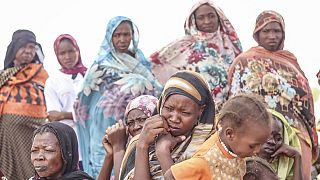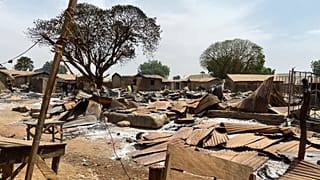Sudan
As the conflict in Sudan enters its third week the World Health Organisation's regional director for the Eastern Mediterranean alerted for the consequences of the conflict in the healthcare facilities in the country.
"In numbers, approximately 61 percent of the medical institutes in Khartoum stopped working because to the direct military attacks, military occupation for those institutes and firing their staff. 23 percent of the hospitals in Khartoum work partially, and 16 percent work at full capacity, this is the health situation in Sudan, especially in the conflict areas", announced Dr. Ahmed Al-Mandhari, regional director of the World Health Organization's office for the Eastern Mediterranean.
The conflict has sparked an exodus of trained healthcare professionals from the country further aggravating the situation.
Estimates suggest that 24,000 women will give birth without maternal care in the coming weeks.
"Many working and trained minds in the healthcare sector are fleeing Sudan... There is a withdrawal of many NGOs and non-NGOs due to direct attacks. By all means, it's a disaster", concluded the regional director.
According to the UN even before the conflict,15.8 million people, about a third of the population were already in need of aid.













01:01
African Union holds summit: is it ignoring the real issues?
01:56
AI adoption rises in governments, but citizen satisfaction lags
02:09
Kagame criticises international "threats" against Rwanda as US sanctions loom
00:54
Nigeria: Kwara state massacre survivors terrorised, death toll at 162
01:16
Britain sanctions six over atrocities and arms support in Sudan War
00:03
2026 World Governments Summit: Can Africa’s next decade work for its young people?